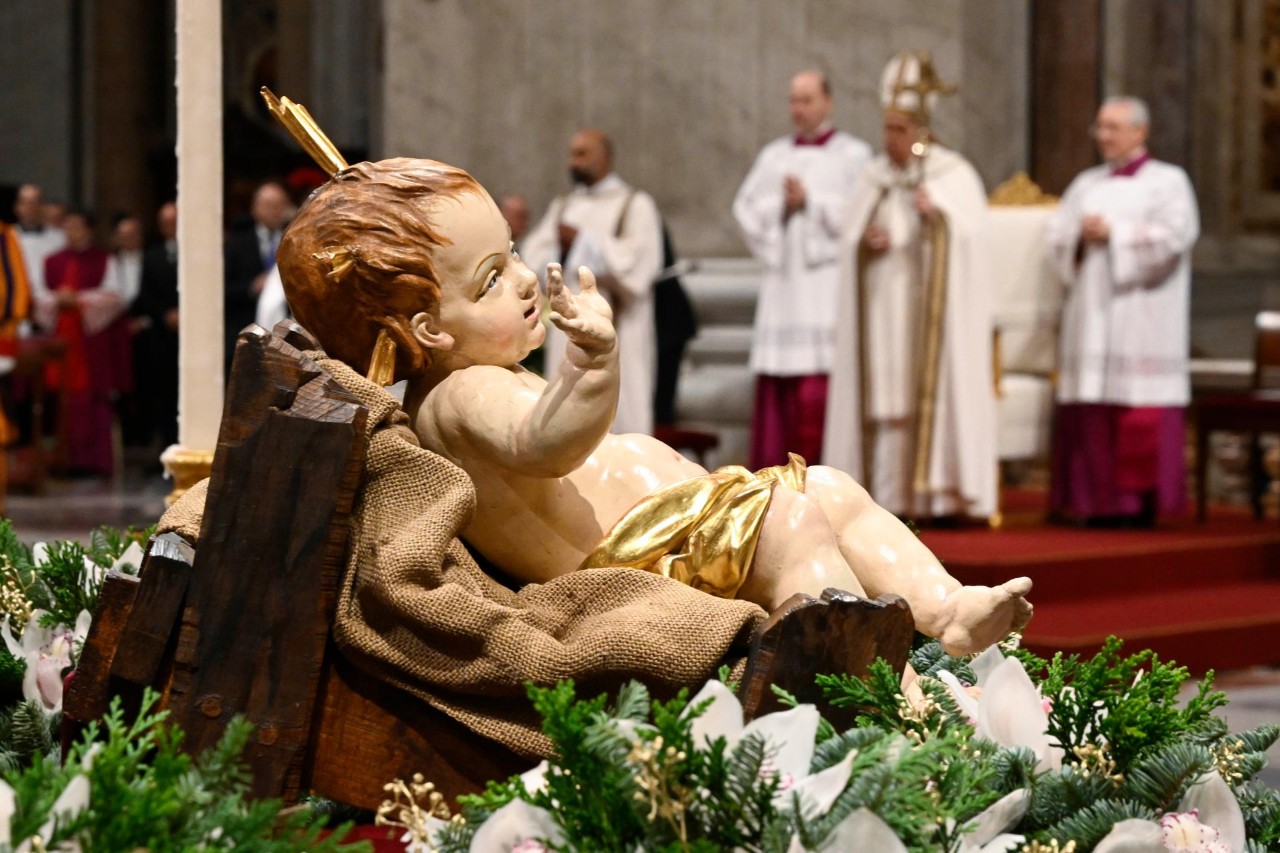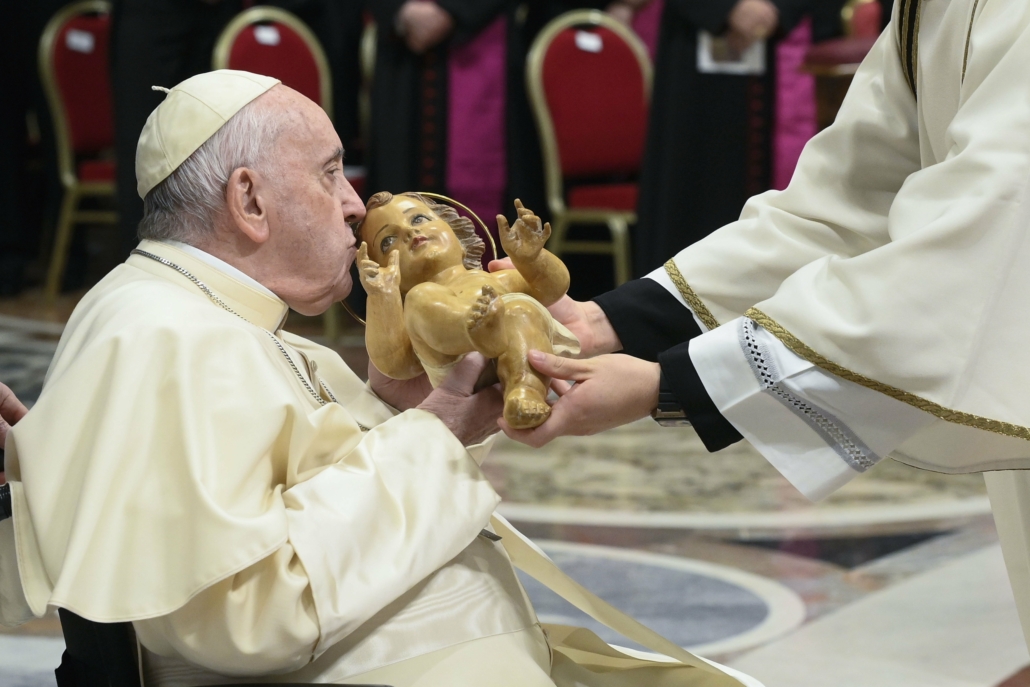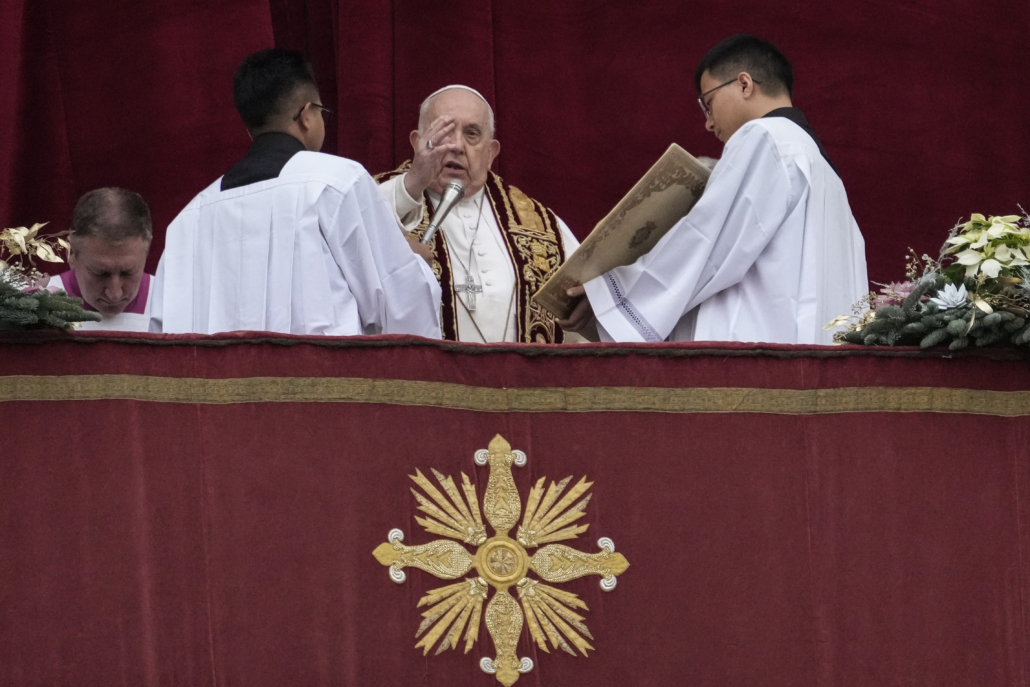In his homily of the solemnity of the nativity of the Lord, Pope Francis reflects on the profound contrast between the worldly pursuit of power and success, exemplified by a census, and the humble arrival of God in the person of Jesus Christ. The Pope draws attention to the census mentioned in the Gospel, highlighting its negative connotations in Scripture, particularly referencing King David’s misguided census, driven by a desire for power and self-sufficiency.
The central theme revolves around the uniqueness of Jesus’ birth, occurring in Bethlehem during a census. Pope Francis underscores the humility of God’s entry into the world, contrasting it with the grandiosity associated with worldly power. While rulers seek prominence through numbers and might, God chooses a path of littleness, entering the world almost unnoticed. The Pope points out the tendency of humanity to measure success in terms of achievement, results, and numbers, a mindset obsessed with worldly accomplishments.
Pope Francis addresses the misconception of a distant and powerful deity associated with success and consumerism, contrasting it with the true nature of God revealed in the Incarnation. Pope Francis emphasizes that God, in becoming flesh, does not eliminate injustice through force but through love. This God does not impose punishment for the census but rather allows Himself to be registered among many.
The Pope challenges believers to question their concept of God, asking whether they believe in the God of incarnation or the god of achievement. He encourages a shift from a false image of a distant and petulant deity to an understanding of a compassionate and merciful God who enters the world in weakness. The homily concludes by inviting believers to worship and embrace the transformative power of God’s love, emphasizing that love changes history and that true worship is a way to cooperate in the work of the Lord.
Full text of Pope Francis’ Homily can be accessed from here.





